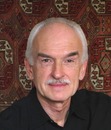Frederick Thomas’s First Lessons in the Ways of Popular Entertainment
Frederick’s subsequent career in Brooklyn suggests that he impressed guests at the Clarendon Hotel. After working there for some months as head bellboy, he left to become a personal valet to a leading local businessman, Percy G. Williams, who had taken up temporary residence in the hotel in the early summer of 1894 and was on the verge of making his mark on the history of American popular entertainment.
Williams was a typical American “self-made man,” and parts of his life would surely have served as one of a series of models for young Frederick. When Williams first came to Brooklyn a decade or so earlier, he ran a medicine show that featured battery-charged “liver bags” as a cure for rheumatism and his own song-and-dance numbers in blackface. But Williams did not continue in this questionable vein and shortly before Frederick met him tried his hand at real estate. In 1893, with the financial backing of a partner who had made his money manufacturing “Tutti Frutti” chewing gum, Williams bought a 300-acre tract of marshland called Bergen Beach on Jamaica Bay, which defines the eastern edge of Brooklyn. The original plan to develop the tract as a residential community failed, however, and the partners decided to transform it into a summer entertainment complex, which came to hugely successful fruition several years later. In the meantime, Williams pursued another form of “theatrical business,” as Frederick would refer to it later. He became a stockholder in a new theater being built in Brooklyn in 1894, and then, when this succeeded, began to buy theaters on his own. In less than a decade, he owned seven and had become the biggest entrepreneur in vaudeville in the New York area. In 1912, he sold his chain of theaters to Benjamin Franklin Keith, “the father” of American vaudeville, and the owner of a network of theaters spreading from Chicago to the Atlantic seaboard; the fabulous sum was between five and six million dollars, or the equivalent of more than one hundred million in today’s money.
In many ways, Williams did not resemble what one might imagine a prominent showman during the Gilded Age to be. He was modest, soft-spoken, and gentle, eschewed the flashy diamond pinky ring, and was honest in his business dealings and fair to his employees. Striving to provide the best possible entertainment, he personally chose acts for his theaters during recruiting trips to major vaudeville venues in Europe. Two stars still remembered today, Charlie Chaplin and Stanley Laurel (of Laurel and Hardy fame), would get their American start in one of Williams’ theaters. When Williams died in 1923, he left half of his entire estate, which included his grand house on thirty acres at East Islip, Long Island, to establish the “Percy Williams Home” for “the care and maintenance of old and infirm players of the dramatic and vaudeville stage.” In his will, he wrote, “I made my money from the actors; I herewith return it to them.” In a striking gesture of kindness, Williams also bequeathed “one month’s wages for each year of continuous employment” to each of his household servants.
Frederick was long gone from the United States by this time, but it seems reasonable to infer that he too had been treated well in his day. It is also possible that by working for Williams, Frederick was able to observe and to learn from an estimable and successful businessman. At the very least, a valet was in a position to overhear some of his employer’s comments to others; a humane employer like Williams could also easily have engaged his valet in conversation. Given the resemblance between the kinds of light theatrical entertainments that Williams ran in Brooklyn and that Frederick would come to operate in Moscow, the attention to every detail of the business that each showed, the undemonstrative way in which Frederick would hold himself, and the decency with which he would treat his employees, one wonders if Frederick ever fantasized about following in Percy Williams’ footsteps when he was laying out his employer’s evening clothes or bending down to light his cigar?



